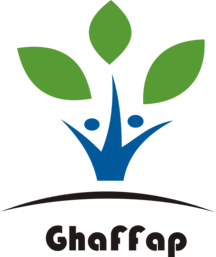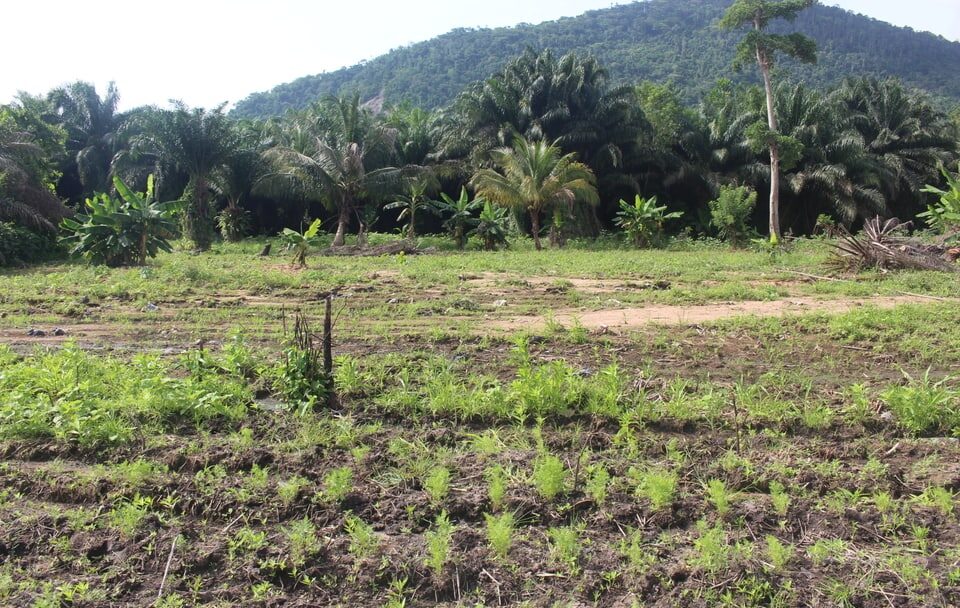Smallholder Forest and Farm Producers: Key agents for achieving rural economic development and pro-poor wealth creation in Ghana – A gender perspective
Forest landscapes are inhabited by approximately 1.5 billion people across the globe. The aggregate gross annual value of these smallholder forest and farm producers is estimated to be in the region of US$ 1.3 trillion globally. There is therefore ample evidence of the potential contribution of smallholder forest and farm producers especially to the economies of rural forest-fringe communities.
In Ghana, Agriculture and forestry continue to be the backbone of the economy collectively contributing up to 43% of Gross Domestic Product (GDP), 50% of export revenue and 70% of total employment. Despite the significant contribution the forest and agricultural sectors offer the Ghanaian economy, high rates of deforestation continue to pose a significant threat to climate and biodiversity with direct impacts on agricultural and forest landscapes. Given that forest-fringe communities in Ghana remain the last forest frontiers with a generally high incidence of poverty, there is an urgent need for urgent need for action that effectively contributes to reducing poverty through economic alternatives that also maintain the forest cover.
In recognition of the above, the Ghana Federation of Forest and Farm Producers (GhaFFaP) – a member-based forest and farm producer federation with a membership of over 1 million smallholders drawn from the forest, transition and savanna ecological zones of Ghana has been actively promoting sustainable forest and farm businesses as a catalyst for achieving decent jobs and gender-inclusive wealth creation for members. GhaFFaP’s main approaches draw on building synergies with relevant stakeholders through multi-stakeholder roundtables at the grassroots, zonal and national level and drawing on the “strength in numbers” of its collective membership to influence the adoption of various Nature Based Solutions (NbS), with a view to achieving ecosystem benefits that can effectively support sustainable livelihoods of smallholder forest and farm producers.
A flagship initiative currently being implemented by GhaFFaP is the National Dialogue Series – GhaFFaP strives to serve as a platform in advocating for gender- inclusive and equitable forest and farm policies and laws in Ghana and to engage its members, as agents of change, in discussing solutions towards strong, sustainable and climate resilient forest and farm businesses that improve members standard of living. To this end, GhaFFaP organises a National Dialogue Series, held every six months, with member representatives, policy makers, financial institutions (Public and Private), input and output market actors and development partners to give a voice to members carefully identified challenges and find solutions that address critical policy, market, and finance opportunities.
Key to GhaFFaP’s approach towards supporting smallholder forest and farm producers to achieve sustainable forest and farm businesses is its unique emphasis on gender mainstreaming at all levels of the forest and farm value chains to ensure that interventions highlight a gender perspective, GhaFFaP supported the development of a Women and Youth Champions Wing which actively work across GhaFFaP’s structures from the grassroots through zonal and national level. Women and youth are important actors in the forest and agricultural sectors. However, they face a major challenge due to their lack of active participation and decision-making power at household, community, and organizational levels, resulting in widespread and cross-cutting constraints that lead to productivity losses and inefficiency along the different value chains. These constraints are also significant factors in determining women’s work burden and use of time including but not limited to ‘unpaid care work’, their mobility, their participation in group activities and their access to necessary services and inputs. Similarly, women and youth low levels of participation in rural organizations and institutions limit their ability to access essential services and markets and reduce their opportunities to strengthen links with other value chain actors, influencing on matters affecting the governance of the production systems and value chains.
The GhaFFaP Women and Youth Champions Wing, mandated to addresses these constraints, is thus an important component of GhaFFaP structures which is consciously integrated at a vertical (grassroots through zonal and national level) and horizontal (across zonal level: savanna, transition, and forest ecological zones) levels.
The GhaFFaP Green Market (GGM) is another strategic initiative that has been developed by GhaFFaP towards the promotion of ‘greener’, gender-inclusive and profitable forest and farm business value chains which offer mutual benefits for smallholder forest and farm producers and the landscapes upon which they depend. The Green Market Strategy is focused on; (i) Green Production – aimed at promoting environmentally and socio-economically sustainable, equitable and fair forest and farm production systems which actively engage women and youth through capacity and skills development that creates lasting benefits for the environment; (ii) Product Aggregation – A GhaFFaP product aggregation model that is carefully structured to take advantage of GhaFFaP’s strength in numbers for the aggregation of a ‘basket of products’ with an emphasis on moving from ‘single commodity’ to ‘multiple commodity’ value chains and the appropriate market linkage facilitation ensuring smallholder forest and farm producers have a higher market share; (iii) Value Addition, Branding and Marketing – GhaFFaP works vigorously towards value addition, processing and commercialization of primary products produced by member organizations. GhaFFaP views value addition as a critical success factor for smallholders as it can contribute to more diversified incomes and overall increase in profitability of smallholder forest and farm businesses.
The Second Edition of the GhaFFaP National Dialogue Series is being held under the Theme: “Smallholder Forest and Farm Producers, key agents for achieving the sustainable development goals (SDGs) in the context of green recovery”
The theme was carefully chosen as a clarion call to action on key stakeholders to consider the active involvement of smallholder forest and farm producers as major players in our national, regional, and global aspirations towards achieving the Sustainable Development Goals (SDGs) which target is only a decade away. GhaFFaP also wish to underscore the critical role smallholder forest and farm producers, women and men, can play in our national and international efforts towards achieving a ‘green recovery’ in the context of the COVID-19 global pandemic which has no doubt brought about enormous devastating effects on populations and economies around the globe. GhaFFaP therefore holds the view that there needs to be an urgent and multifaceted approach towards achieving this recovery and that smallholder forest and farm producers and their organisations are ready to play a critical role in achieving this recovery.
The Peasant Farmers Association of Ghana (PFAG) is the apex national coordinating organization of the affairs of GhaFFaP.
PFAG is a Non-Governmental Organisation in Ghana with the goal to advocate for pro-poor agriculture and trade policies and other issues that affects the livelihoods of small holder farmers. (For more information about GhaFFaP please visit the GhaFFaP website : www.ghaffap.org ).


